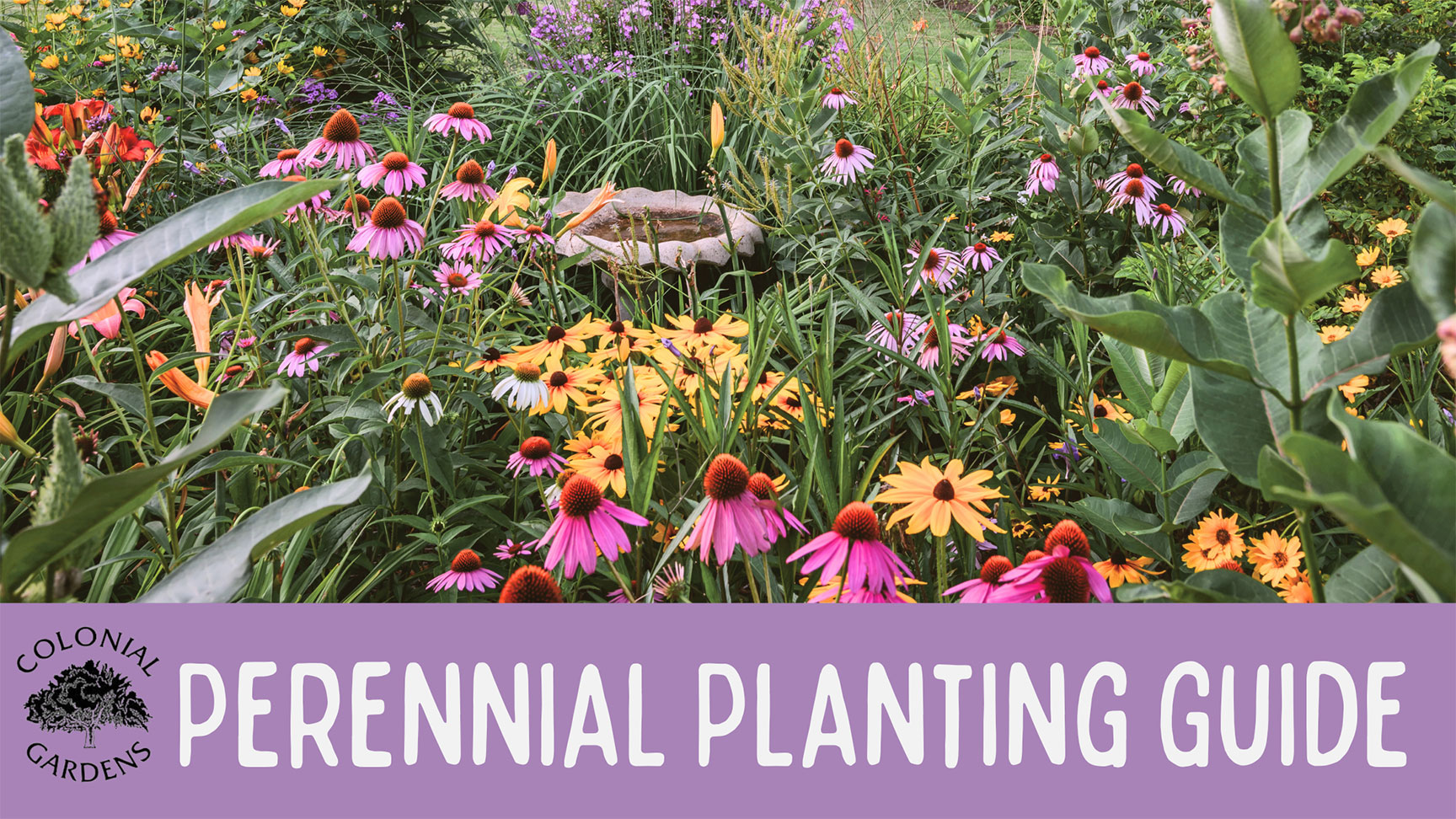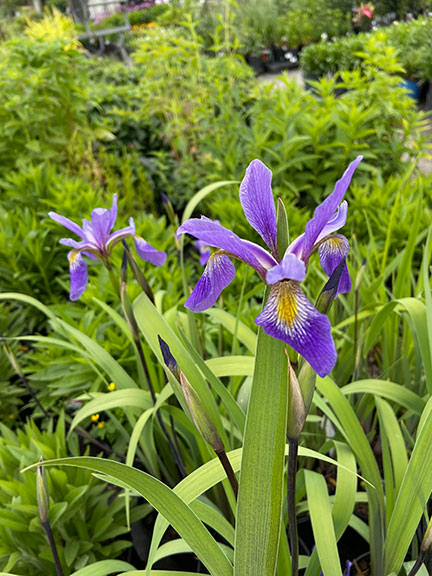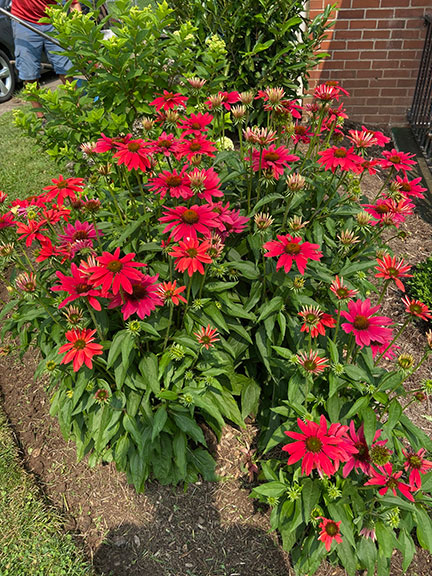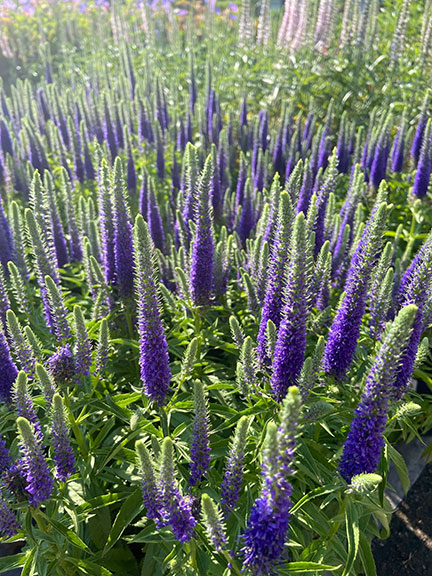
Right Plant, Right Spot
Perennials can thrive in your yard for years so long as they are put in the proper spot. Check the tag on your desired plants to see sun and soil recommendations. Make sure this matches the conditions where you want to plant them.
The tag should also tell you how big the plant should get at maturity. The plants that you purchase from Colonial are typically not full-sized plants so give them the proper space to grow.
Prepping The Location
Clear the area of plant debris and weeds. Dig a hole at least twice as wide as the pot that the perennial is currently in and about as deep. By loosening the soil around the perennial, you give the roots a better shot at penetrating the surrounding soil area. If you have an area with a lot of clay or poor nutrients, you may want to amend it with ⅓ Bumper Crop soil amendment to add nutrients and better drainage.
Pro-Tip: There is such a thing as spoiling your plant! Some plants, like native plants, prefer less nutrients, while others, like lavender and peonies, will thank you for sweetening the soil.
Many perennials can successfully be grown in containers, however, keeping the roots above the ground over winter may lead to the roots freezing and decreases the likelihood of the plant returning the next spring. For the best chance of success, choose a larger container and a perennial that is cold-tolerant.

Planting
Remove the perennial from its pot. You may need to squeeze the pot to loosen the plant in order for it to slide out. Tease out the roots so that they release from their pot-bound form. If the plant is very root-bound, don’t be afraid to cut the roots to properly loosen them. If you skip this step, the plant may continue to grow its roots in the shape of the pot and never access the water and nutrients outside of its immediate area.
Place the plant into the hole, lining up the top of the pot’s soil with the level of the ground. In an area with nutrient deficient soil, you can use BioTone, which contains nutrients and beneficial microbes that allow the plant to establish its roots. Refill the soil hole around the perennial, gently compressing the soil so that it is in contact with the roots.
Water the plant thoroughly after planting. Apply a layer of mulch around the roots to suppress weeds and reduce the need for extra watering.

Maintenance
- Continue to regularly water your perennials for the first month until they are established.
- If the perennial blooms, cut back spent blooms to encourage more flowers and keep the plant from becoming scraggly.
- Perennials typically go dormant in the winter. You can choose to cut it back in the fall, or wait until the spring. Always cut back perennials that combatted disease or pests back in the fall and remove the fallen debris to reduce the risk of recurrence. For other perennials, you may choose to keep the stalks up over the winter, where they act as a safe haven for hibernating beneficial insects.
- If your perennial is in a container over the winter, put it into a protected area, like against the house to prevent it from freezing.
- After a few years, your perennial may lose vigor, or appear to have a dead spot in the middle. This means that it’s time to divide the perennial. You typically want to divide perennials in the opposite season of their bloom.

Planted and cared for correctly, perennials will bring you joy year after year! We carry hundreds of varieties–let us help you pick the right for your home!
See our full perennial list here.
Colonial Gardens is an independent garden center located in Phoenixville in Chester County, Pennsylvania since 1967. We carry one of the widest selection of annuals, perennials, trees and shrubs, and food gardening crops in Southeastern Pennsylvania. We offer professional landscaping services and a full-service florist. Visit our greenhouse for unique houseplants and our gift shop for gifts and garden accessories. In the fall and winter, join us for our family-friendly seasonal events and Christmas shop.
